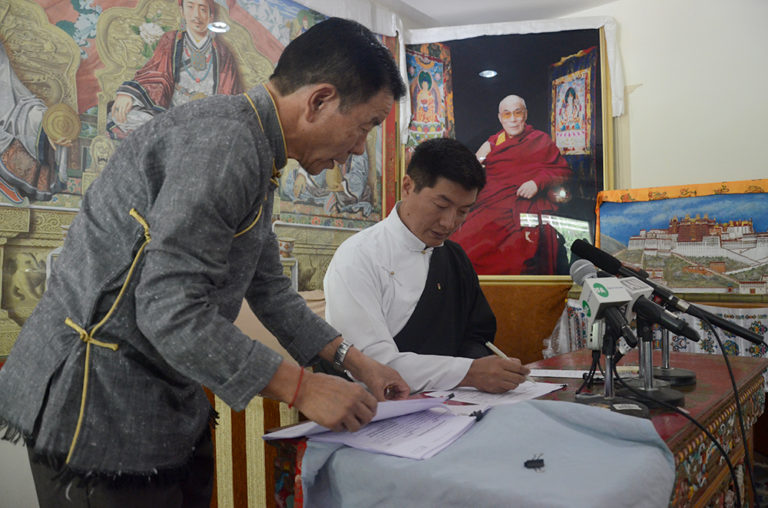
Photo: Tenzin Jigme
The Tibetan Parliament in Exile (TPiE) has passed a new law to change the election process in the light of lessons learnt during previous elections.
The official website of the TPiE, tibet.net reports that the new law consists of three amendments. Firstly, it prohibits all regional and religious associations as well as NGOs from nominating candidates for Sikyong – or President – and Members of Parliament.
“In the recent election, some regional organisations acted like de facto political parties and nominated candidates. These actions have led to some regional issues within the community,” Sikyong Lobsang Sangay is quoted as saying in Phayul and tibet.net.
The second major amendment is with regard to the process of the election for Sikyong. In the case that two or more than candidates be nominated, a second round will not be held if one candidate gains more than 60% of the votes cast. On the other hand, if only one candidate stands that candidate must draw 51% or more of the votes cast, failing which the entire election must be held again.
The third amendment reduces the timeframe for the election process from more than 200 days to less than one hundred days. tibet.net quoted Dr Lobsang Sangay’s comment “It is still long but nonetheless we have shortened it by more than half”. He continued, saying that organisations are banned from nominating political candidates on two grounds, “Firstly, regional or other NGOs are registered with Indian Society Registration Act. As per this Act, these organisations are not allowed to engage in election politics. Their registered by-laws are for specific issues such as social welfare, health or spiritual related.
“Secondly, we take pride in [our] partyless democracy. If there is a political party, sometimes the party’s interest prevails over national interest. Also, a party leader’s interest could prevail over national interest. Hence it harms the national interest.”
Phayul and tibet.net both quoted Sikyong as saying, “Tibetan democracy is a [a] partyless democracy. We believe in it and we take pride in it. Now with these amendments, we have achieved true partyless democracy.”
The reform amendments secured the support of over two-thirds of the house and were signed off by Sikyong on October 3.
The next elections are due to be held in 2021.




 Print
Print Email
Email